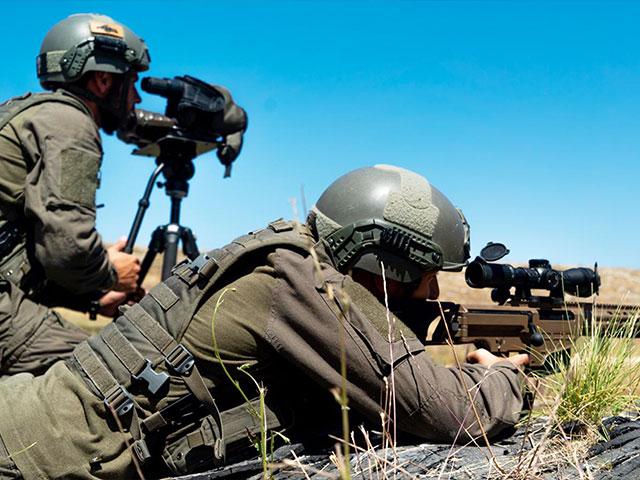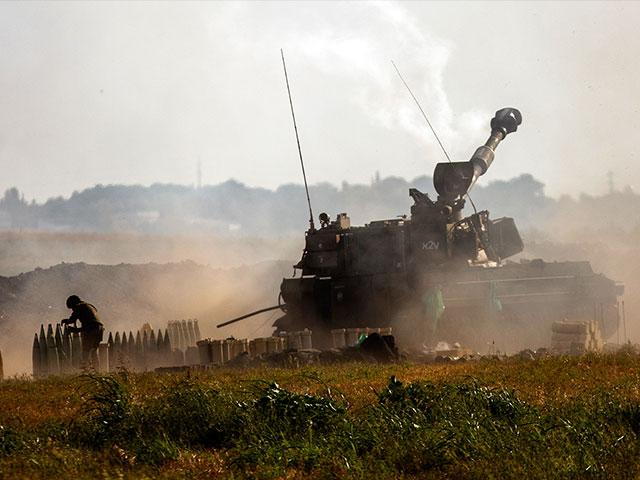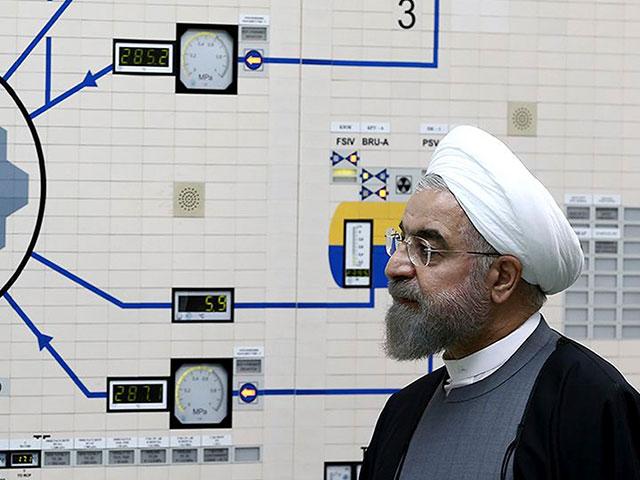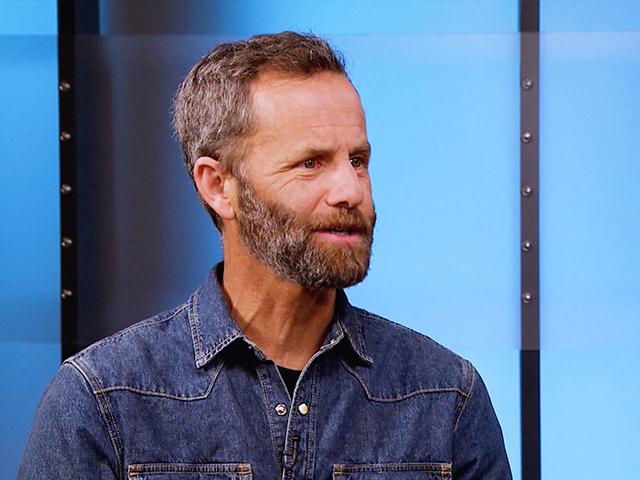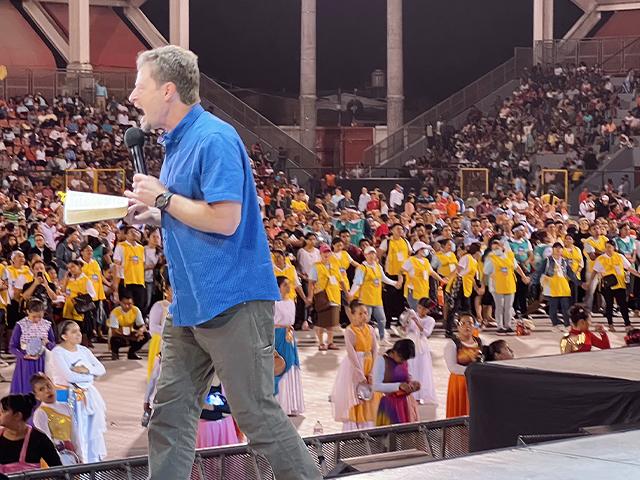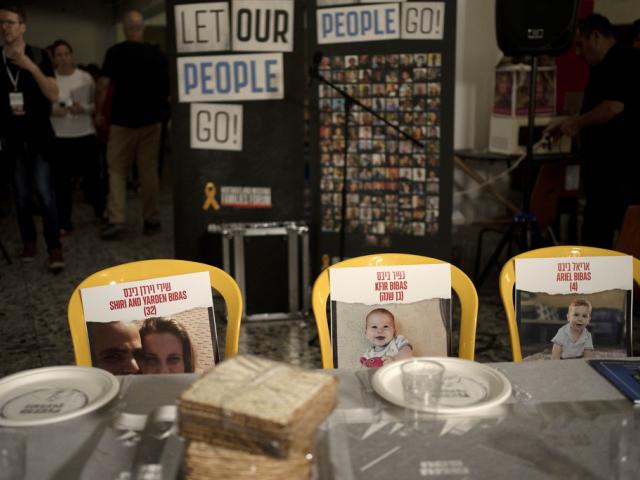JERUSALEM, Israel - Israeli leaders insist they will not allow Iran to get a nuclear weapon. For years, the overshadowing question has been whether Israel would take pre-emptive action to cripple or destroy the regime’s nuclear program.
Yaakov Katz, the Editor-in-Chief of The Jerusalem Post, has studied the question for more than a decade. In 2012, he served as the paper’s Defense Analyst.
As co-author of “Israel Vs. Iran: The Shadow War”, he examined the potential for an attack on Iran’s nuclear program.
“It seemed at the time (in 2012) that Israel was capable of doing it. I distinctly remember one meeting that I was brought into at the Air Force headquarters in Tel Aviv with the top Air Force general, who basically laid out – you know, rolled out a map on a table and showed us how the Israeli Air Force squadrons would fly to Iran,” Katz tells CBN News.
At the time, Israel prepared night and day.
“The Air Force had been training extensively for this operation. Billions and billions of shekels had been poured into this planning and to training and to buying up the munitions and the technology and the weapons that would be needed to take out some of the facilities,” he says.
Then-Prime Minister Benjamin Netanyahu and Defense Minister Ehud Barak tried but failed to convince the cabinet, army and security chiefs to take action.
“In the end, that never happened. So that was the backdrop back in 2012 and it seemed real. It seemed viable and it seemed like Israel had a real opportunity to cause enough damage to set back Iran’s nuclear program,” says Katz.
Ten years later, the problem and targets remain the same. They Include Natanz, which is Iran’s main uranium enrichment facility, and the Fordow facility, which has thousands of centrifuges burrowed into a mountain. In the western city of Arak, a heavy water plutonium facility is under construction. Meanwhile, further south, Iran has a uranium conversion facility in Isfahan.
Even though this scenario hasn’t changed in 10 years, Katz says Israel’s military capability is stronger than it was back in 2012.
“Back in 2012, we had F-15s and F-16s, there [were] 4th generation fighter jets that are detectable on radar. Today, we have F-35s. These are the JSF, the Joint Strike Fighters that have stealth-like capabilities, that can, basically, go fly into an enemy airspace and not be detected … the big, heavy bombers, the F-15s and the F-16s come in and drop a ton of munitions all over these different facilities to destroy them. We have that."
But with all that, the question for many has been, can Israel do it? Katz says it’s “a little more complicated today.”
“I think that back in 2012, the feeling was that ‘yes, it could do it.’ Then, Iran’s nuclear program was not as advanced as it is today. It was not as heavily fortified as it is today. It was not as dispersed as it is today. With that said, even then, it would have been just causing enough damage to set them back for a period of time, right?”
Katz points out even if there were an attack, it wouldn’t be the end of the story.
“I think that no one has any illusion to believe that if Israel attacks Iran, that there's never going to be a nuclear program. No, there can be because the Iranians have the domestic know-how, they have the technology. It's in their heads. And while you can destroy their facilities and infrastructure, you can't take away their knowledge,” says Katz.
Plus, any military move likely leads to a regional war with Iran unleashing Hezbollah, its proxy army in Lebanon, to fire thousands of missiles into Israel.
“Is the damage that you will cause Iran's nuclear infrastructure going to be worth the war that will ensue, the international condemnations that you will almost definitely face from the world, which is not going to be happy to see Israel attack Iran, especially if there's going to be a new nuclear deal that comes out of these talks in Vienna that are taking place as we speak? So, there's a lot of other factors that Israel needs to take into consideration.”
It's an age-old dilemma that now faces a new set of Israeli leaders.
“I don't think Israel can live with a nuclear Iran. I think a nuclear Iran has the potential to pose an existential threat to the State of Israel. So, it's not like I'm saying we should just sit back and let this happen. No, we have to do what we have to do. But we also have to realize that sometimes power has its limits. So, it's complicated,” says Katz.
Still, Israeli military and political leaders have increased talk about the possibility.
"Israel is beating those war drums now, not because we're about to attack tomorrow. I don't think that's what it is. And I also don't think it's a bluff. I think it's real, but it's aimed at getting Biden, getting Johnson, getting Macron, getting the world leaders to understand that a bad deal ain't going to fly for Israel. And Israel’s going to have to do what it's going to have to do to keep itself safe.”
Despite the preparation and bluster, Katz says Israel wants to avoid war.
“The threat, sadly, is still there and it needs to be dealt with. I would hope and pray that it can be dealt with without the use of force, without the need for war and bloodshed. That is always the Israeli and Jewish preference…to be able to do this through peaceful means, through dialogue, through discussion, through a deal. But unfortunately, we are dealing with a murderous regime that has so much blood on its hands that it's only seeking and hungry for more. And that's why it needs to be stopped.”
And another part of history also remains, as Katz points out, often the Jewish people stand alone.
“That famous saying of Hillel the Elder, a Jewish scholar from the period of the Talmud, from a couple of thousand years ago, who said back in the time, in Hebrew, ‘If I am not for myself, who will be for me?’ And what was true thousands of years ago for the Jewish people is still so true in the year 2022.”
Did you know?
God is everywhere—even in the news. That’s why we view every news story through the lens of faith. We are committed to delivering quality independent Christian journalism you can trust. But it takes a lot of hard work, time, and money to do what we do. Help us continue to be a voice for truth in the media by supporting CBN News for as little as $1.










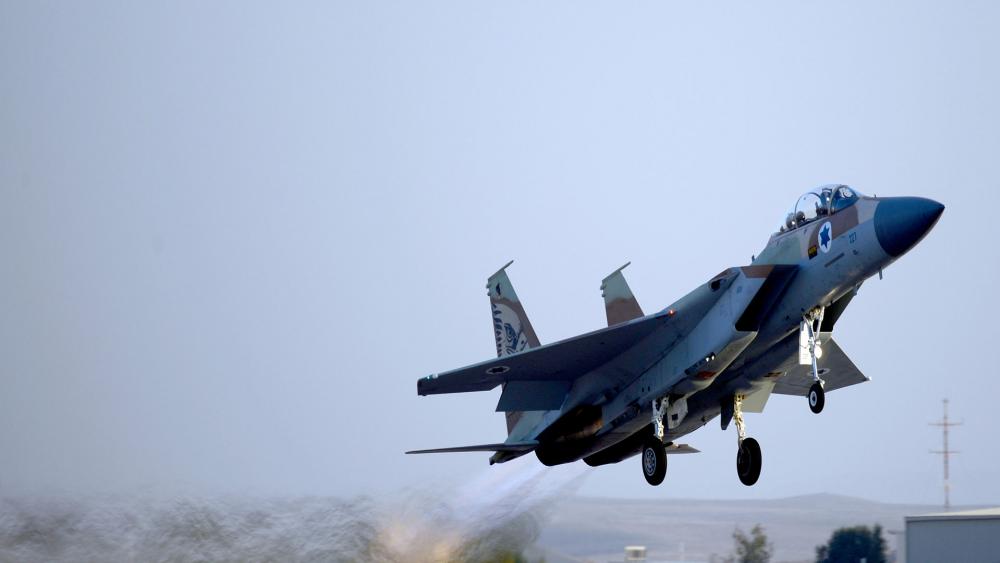
 Support CBN News
Support CBN News



